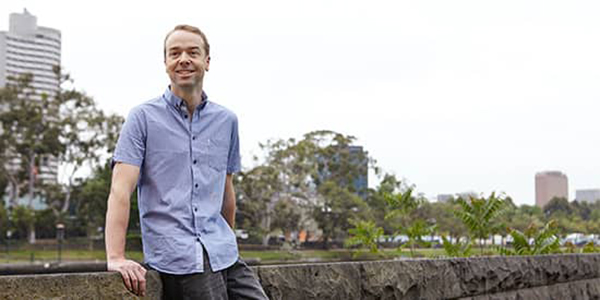The AquaFI Hub is a $9.8 million investment for farming, feed and technology development

Deakin University in Victoria, Australia, announced plans to construct a $9.8 million state-of-the-art aquaculture research center for sustainable fish production, novel feed and aquaculture technology development and industry training.
Associate Professor David Francis from Deakin’s School of Life and Environmental Sciences will lead research on improving the sustainability of the aquaculture industry with a strong focus on aquafeeds and finding novel ingredients to replace traditional marine ingredients like fishmeal and fish oil.
“Our key focus is to improve the way we feed our farmed fish, and to make it more nutritious and sustainable,” Francis said in a news release. “Aquaculture covers a range of disciplines, like biology, chemistry, engineering and economics. We want to bring in the entire aquaculture industry and solve these problems together.”
The AquaFI Hub on the Waurn Ponds campus will receive funding from the Victorian Government through its Higher Education State Investment Fund. According to Francis, a circular “bioeconomy” is the future of the aquaculture feed industry. The facility will work directly with industry to explore the use of sustainable ingredients in creating fish food, including the use of underutilized byproducts from other industries.
Francis and his team will collaborate with Deakin’s School of Exercise and Nutrition Sciences to ensure any new feed products don’t negatively impact fish texture or flavor.
“We’re looking to make some major strides towards the on-farm management of fish through our novel dietary interventions,” he said.
Follow the Advocate on Twitter @GSA_Advocate
Now that you've finished reading the article ...
… we hope you’ll consider supporting our mission to document the evolution of the global aquaculture industry and share our vast network of contributors’ expansive knowledge every week.
By becoming a Global Seafood Alliance member, you’re ensuring that all of the pre-competitive work we do through member benefits, resources and events can continue. Individual membership costs just $50 a year. GSA individual and corporate members receive complimentary access to a series of GOAL virtual events beginning in April. Join now.
Not a GSA member? Join us.
Author
Tagged With
Related Posts

Aquafeeds
Aquaculture Exchange: Giovanni Turchini, Deakin University, part 1
One of the world’s leading fish nutrition experts talks about how aquaculture can learn to survive, and even thrive without depending on fishmeal and fish oil. It’ll take a lot of innovation, but Giovanni Turchini is confident that the industry is on the right path.

Innovation & Investment
Better together: Partnerships drive innovation at leading labs
Laboratories with industry partnerships are making aquaculture more innovative, efficient and responsible. These collaborations offer access to expertise, facilities and funding to further the industry and improve global food security.

Aquafeeds
Point: There are no essential ingredients in aquaculture feeds
Kevin Fitzsimmons, leader of the F3 (fish-free feed) Challenge, says aquaculture may currently depend on fishmeal and fish oil, but farmed fish do not.

Aquafeeds
Counterpoint: Marine ingredients are stable in volume, strategic in aquaculture nutrition
IFFO Director General Petter M. Johannessen says fishmeal and fish oil offer unmatched nutrition and benefits to fuel aquaculture’s growth trajectory.


